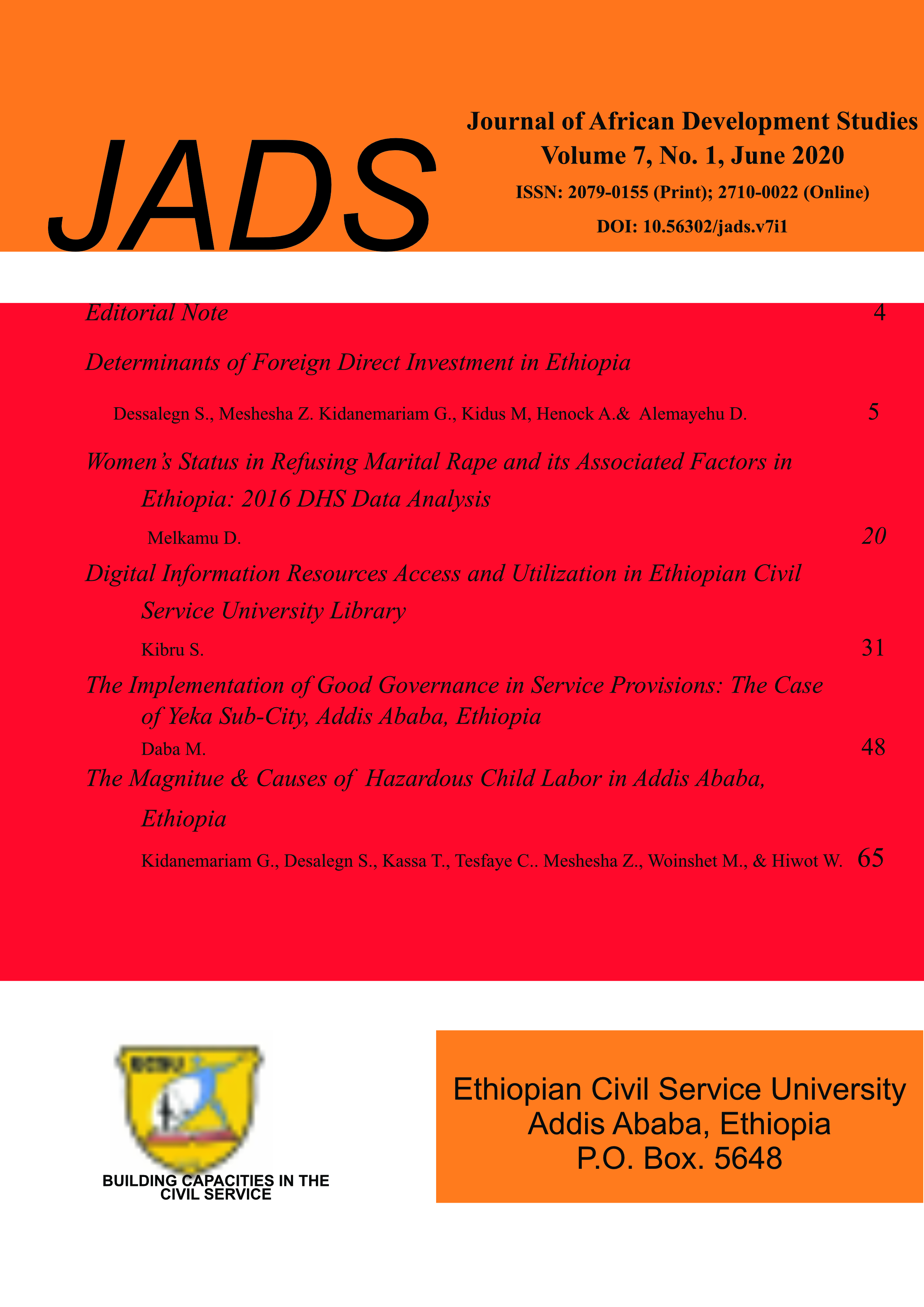Determinants of Foreign Direct Investment in Ethiopia
DOI:
https://doi.org/10.56302/jads.v7i1.3112Keywords:
Determinants of FDI, ARDL, Ethiopia.Abstract
Economic growth among others depends of investment which in turn relies on savings. In developing countries low domestic savings so that low investments are resulting low economic growth. Under such condition the role of FDI is indispensable. In light of this, many developing countries make considerable efforts to attract FDI. Understanding this, the government of Ethiopia has opened several economic sectors to foreign investors. It has also made a range of policy reforms and issued several incentives. Considering this fact, this study tried to identify factors that determine the flow of FDI in Ethiopia based on secondary data for the period 1991 to 2018 employing Autoregressive Distributed Lag (ARDL) model. The findings displayed FDI inflows to Ethiopia are increasing, despite the fluctuation. The findings also revealed incentives to foreign investment and enhancing economic growth are important in attracting FDI, while higher inflation and effective exchange rate have significant and negative effect on the inflow of FDI. The findings of the research suggest the need to curb inflation and reduce effective exchange rates, and enhance incentives for investors especially for investors in production of import substitute and exportable items.

Downloads
Published
How to Cite
Issue
Section
License
Copyright (c) 2020 Journal of African Development Studies

This work is licensed under a Creative Commons Attribution-NonCommercial-ShareAlike 4.0 International License.




